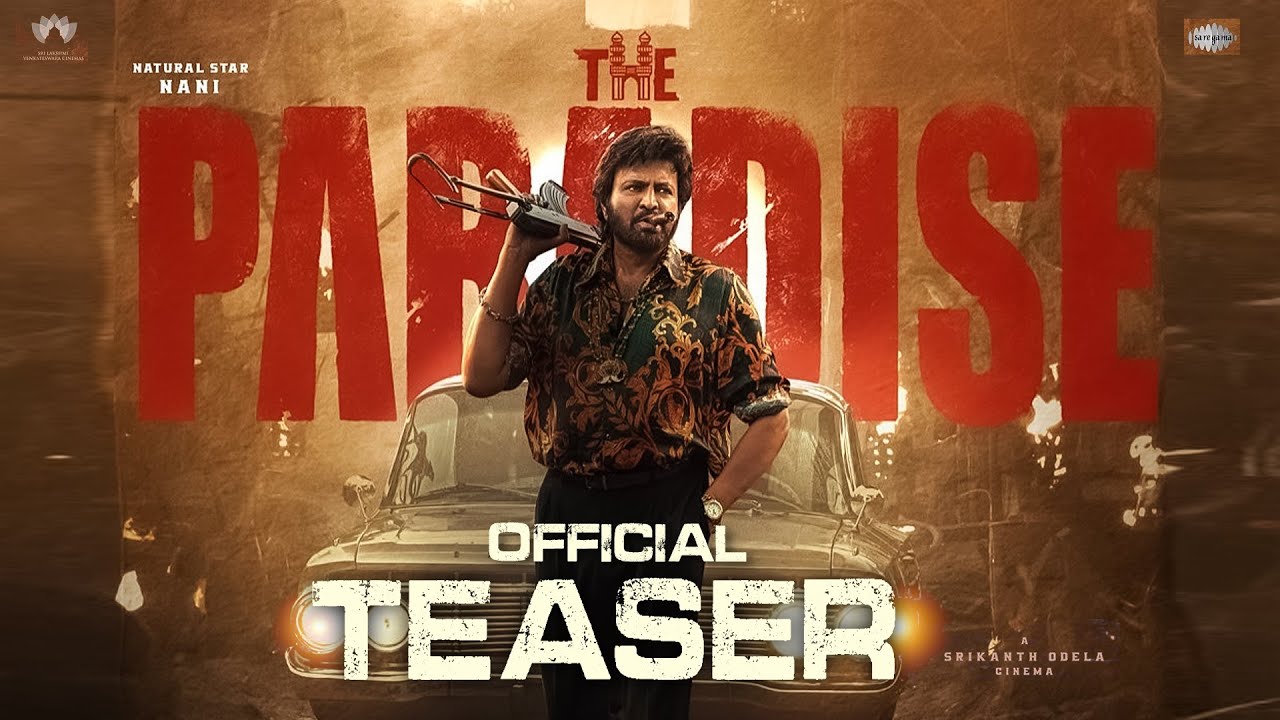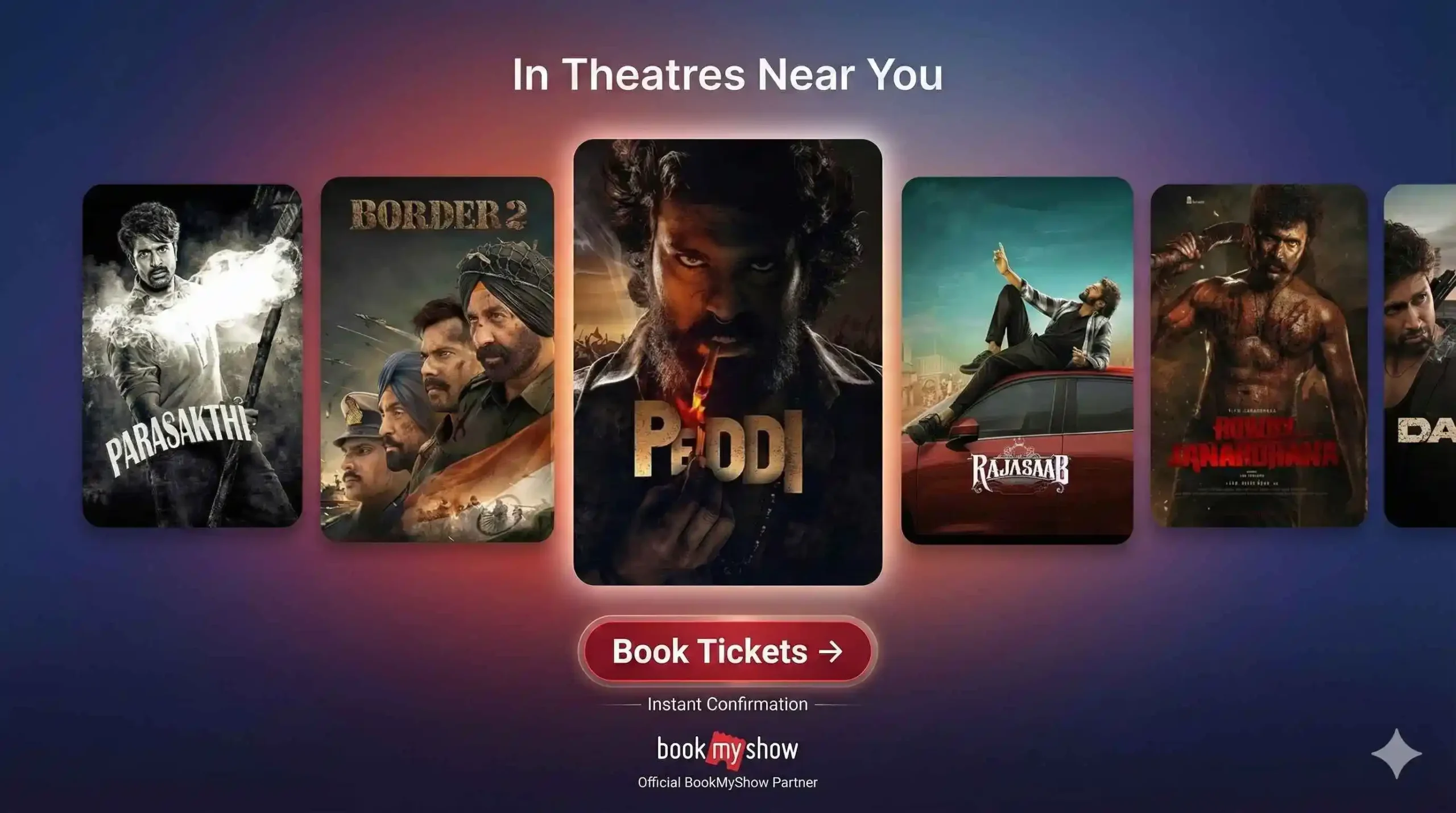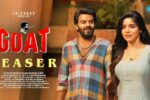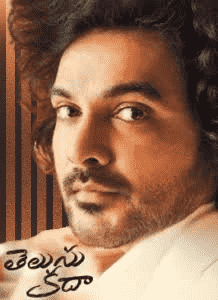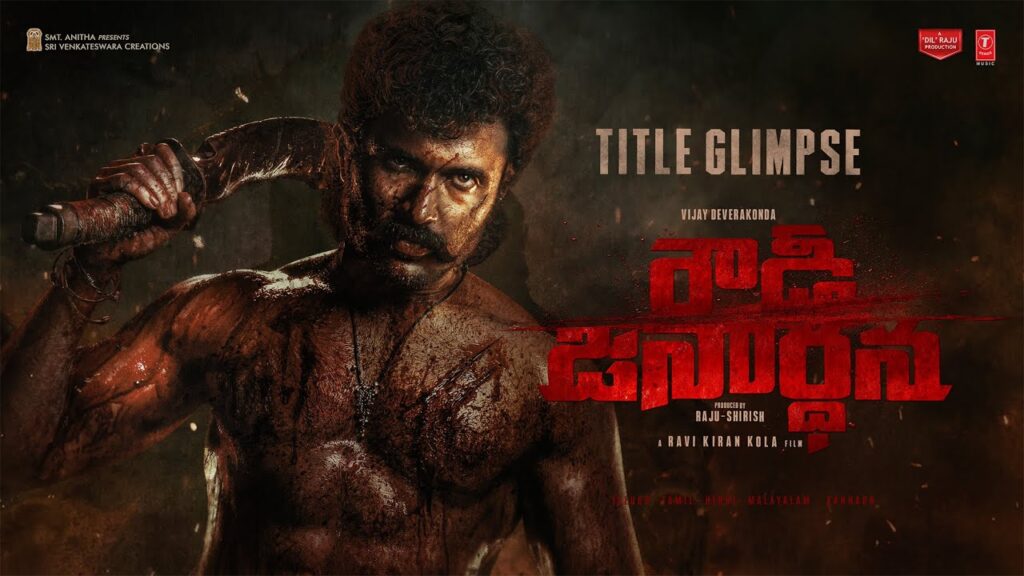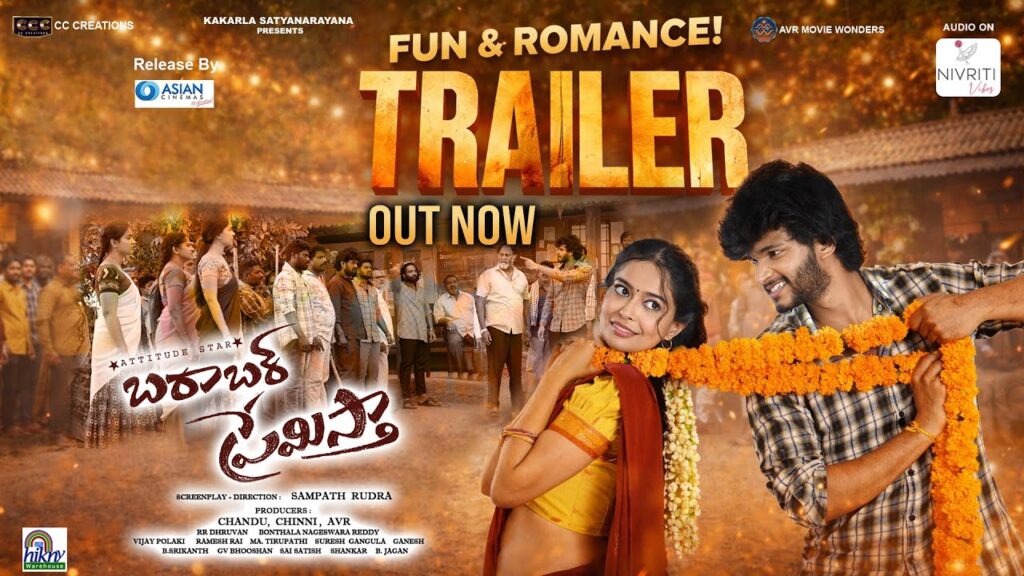The Paradise Nani Movie 2025 Bapamtv Review Details
The Paradise (2025) Movie Review
Director: Srikanth Odela
Check showtimes, seat availability, and exclusive offers for the latest movies near you.
Check on BookMyShow →Cast: Nani, Mohan Babu, Sonali Kulkarni, Raghav Juyal
Music: Anirudh Ravichander
Release Date: March 26, 2026
Introduction
The Paradise is a grand Telugu film that reflects director Srikanth Odela’s vision of cinema as both art and social commentary. With Nani and Mohan Babu leading, the movie blends revolution, emotional depth, and visual intensity.
Director’s Vision
Srikanth Odela carries forward the intensity of his earlier work and magnifies it in The Paradise. His approach balances mass appeal with layered storytelling that does not shy away from hard realities.
His vision is deeply rooted in the socio-political struggles of 1980s Hyderabad, portraying the life of marginalized tribes. By weaving these realities into mainstream cinema, Odela makes the story both relatable and unforgettable.
Directorial Choices
One of Odela’s strongest choices was grounding the narrative in authentic period details. The slum settings, costumes, and even the background score highlight his eye for immersion.
His decision to highlight Nani’s transformation into Jadal showcases not only character evolution but also the director’s belief in creating relatable heroes from everyday struggles.
Influences and Inspirations
The Paradise draws clear influence from Indian parallel cinema and revolutionary dramas that center on the underdog. Odela takes inspiration from raw storytelling traditions, but infuses them with Telugu mass sensibilities.
The music-driven narrative echoes inspirations from old socio-political dramas, where sound and dialogue carried equal weight as visuals. This dual focus is a rare trait in mainstream Telugu films.
Comparison to Previous Works
Odela’s earlier film Dasara also portrayed rustic settings and rugged characters, but The Paradise elevates these ideas. The scale is grander, the themes sharper, and the execution tighter.
While Dasara was limited in geographical context, The Paradise resonates on a pan-Indian level. This shift indicates Odela’s growth as a director seeking global impact.
Signature Elements of Srikanth Odela
Odela’s style thrives on earthy realism, poetic dialogues, and emotionally charged confrontations. These traits form the backbone of The Paradise, giving it a distinct signature.
His recurring focus on strong female characters also continues here, with Sonali Kulkarni’s role adding emotional depth. The combination of rugged masculinity and tender humanity is a clear hallmark of his direction.
Screenplay and Writing
The dialogues penned by Thota Srinivas and team retain Odela’s preference for lyrical realism. They strike a balance between poetic angst and punchy mass appeal.
The screenplay is tight, reflecting Odela’s insistence on urgency. Characters grow organically within the narrative without overindulgence.
Performances Under Directorial Guidance
Nani’s transformation into Jadal bears the director’s mark. His rugged appearance and emotional intensity mirror Odela’s demand for authenticity in every frame.
Mohan Babu’s commanding presence feels amplified by Odela’s framing. His experience and gravitas are given cinematic weight through slow-motion shots and dramatic close-ups.
Cinematography and Direction
Ch Sai’s cinematography perfectly complements Odela’s direction. The gritty visuals of Secunderabad’s slums echo the director’s intent to immerse audiences in realism.
Lighting choices, muted tones, and long tracking shots reinforce the director’s ability to blend visual storytelling with emotional depth.
Music as a Directorial Tool
Anirudh Ravichander’s soundtrack is used not just as background but as narrative fuel. Odela’s insistence on music-driven storytelling is evident in the revolutionary “Jadal Theme.”
Every beat and chant intensifies the tribal struggle, shaping the audience’s emotional journey exactly as the director intended.
Global and Local Appeal
Odela’s direction ensures that while the story is deeply local, the themes of dignity, resistance, and hope are universal. This duality is what makes The Paradise a landmark film.
By fusing mass moments with arthouse sensitivity, Odela appeals to both commercial and critical audiences.
Table: Key Highlights of The Paradise
| Aspect | Details |
|---|---|
| Director’s Vision | Blend of mass appeal and socio-political realism |
| Signature Style | Earthy realism, poetic dialogues, strong emotions |
| Comparison to Dasara | More expansive, universal, and globally resonant |
| Directorial Influence | Parallel cinema and revolutionary dramas |
| Performances | Nani and Mohan Babu elevated by Odela’s framing |
Box Office Impact
While yet to release, early buzz and marketing indicate strong box office potential. Odela’s reputation and Nani’s transformation are already generating hype.
The director’s pan-Indian approach may help the movie cross regional boundaries and strengthen Telugu cinema’s global visibility.
Final Verdict
The Paradise is a clear showcase of Srikanth Odela’s growing mastery as a filmmaker. His ability to combine social realism with engaging storytelling places him among the most promising voices in Indian cinema.
Through bold choices, signature style, and universal themes, Odela transforms The Paradise into more than a movie—it becomes an experience of vision and voice.
Star Rating
⭐️⭐️⭐️⭐️☆ (4/5)
Disclaimer: Rating may vary depending on audience reception.
FAQs
Question 1
What is the central vision of Srikanth Odela in The Paradise?
Answer 1
His vision is to combine mass cinema with a layered portrayal of marginalized communities, making it socially relevant and engaging.
Question 2
How does The Paradise compare with Odela’s Dasara?
Answer 2
While Dasara was rustic and local, The Paradise is more expansive and resonates with audiences across India and beyond.
Question 3
What are Odela’s signature elements visible in The Paradise?
Answer 3
His focus on earthy realism, poetic dialogues, strong female roles, and emotionally charged confrontations are clearly evident.
